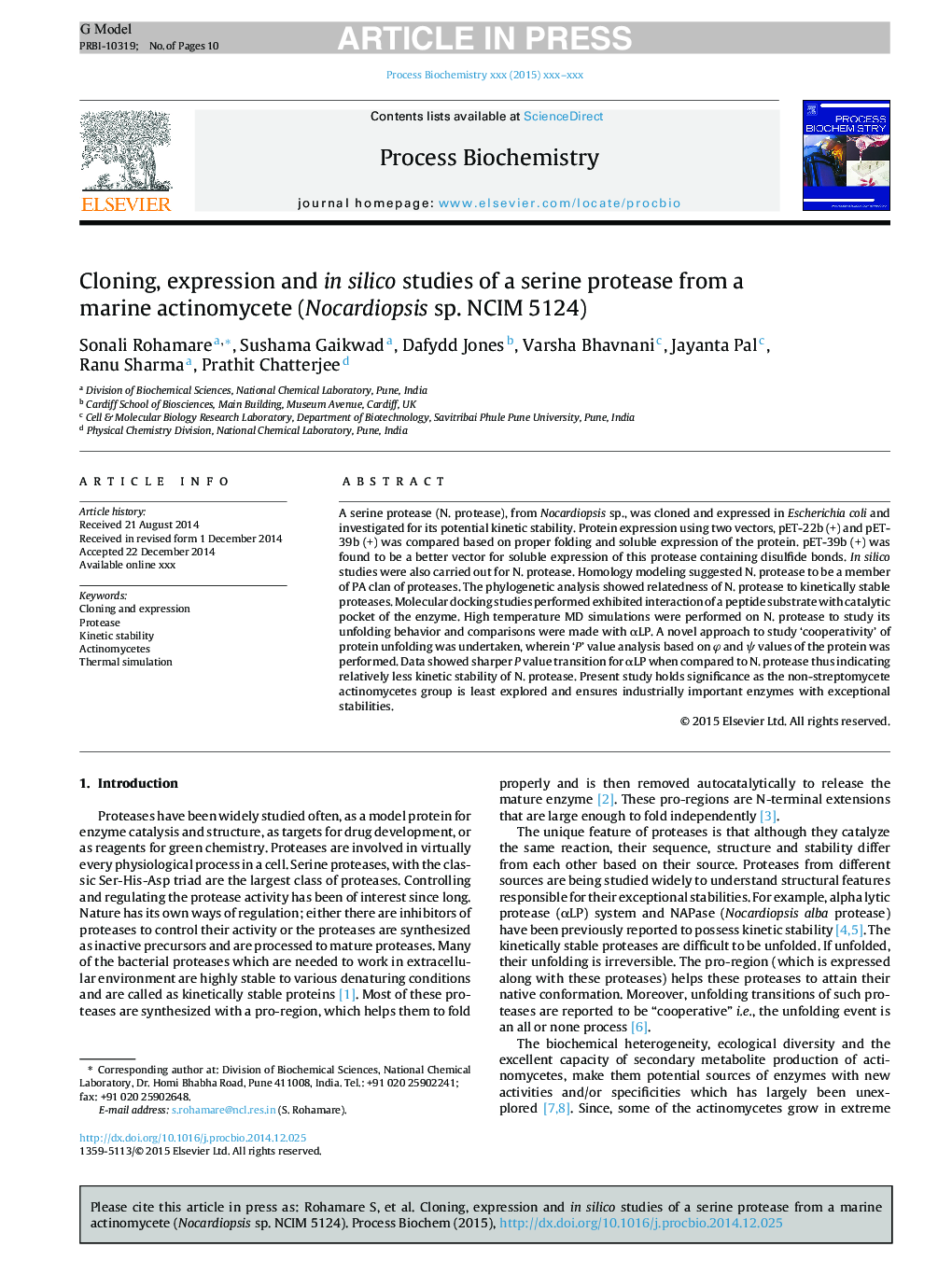| Article ID | Journal | Published Year | Pages | File Type |
|---|---|---|---|---|
| 10235341 | Process Biochemistry | 2015 | 10 Pages |
Abstract
A serine protease (N. protease), from Nocardiopsis sp., was cloned and expressed in Escherichia coli and investigated for its potential kinetic stability. Protein expression using two vectors, pET-22b (+) and pET-39b (+) was compared based on proper folding and soluble expression of the protein. pET-39b (+) was found to be a better vector for soluble expression of this protease containing disulfide bonds. In silico studies were also carried out for N. protease. Homology modeling suggested N. protease to be a member of PA clan of proteases. The phylogenetic analysis showed relatedness of N. protease to kinetically stable proteases. Molecular docking studies performed exhibited interaction of a peptide substrate with catalytic pocket of the enzyme. High temperature MD simulations were performed on N. protease to study its unfolding behavior and comparisons were made with αLP. A novel approach to study 'cooperativity' of protein unfolding was undertaken, wherein 'P' value analysis based on Ï and Ï values of the protein was performed. Data showed sharper P value transition for αLP when compared to N. protease thus indicating relatively less kinetic stability of N. protease. Present study holds significance as the non-streptomycete actinomycetes group is least explored and ensures industrially important enzymes with exceptional stabilities.
Related Topics
Physical Sciences and Engineering
Chemical Engineering
Bioengineering
Authors
Sonali Rohamare, Sushama Gaikwad, Dafydd Jones, Varsha Bhavnani, Jayanta Pal, Ranu Sharma, Prathit Chatterjee,
